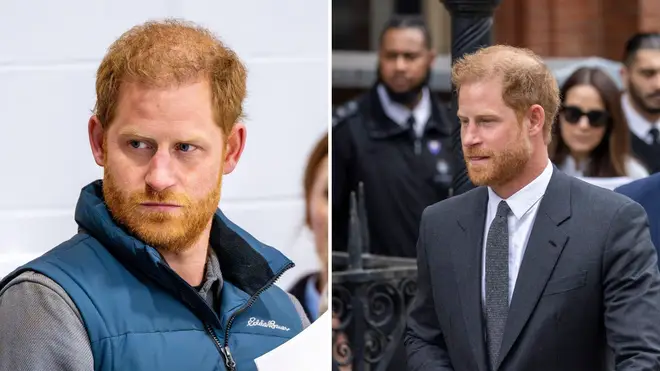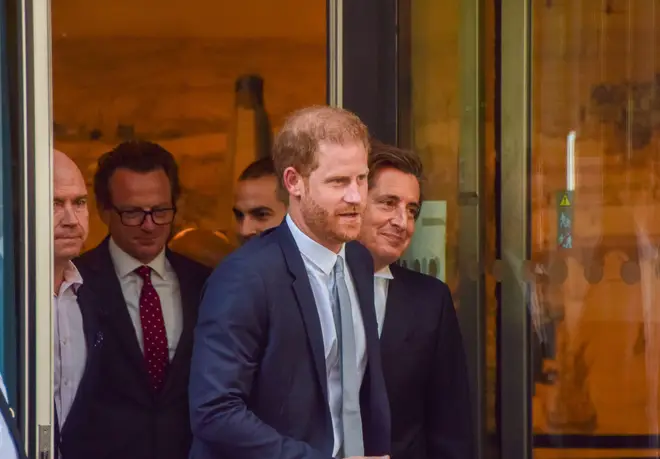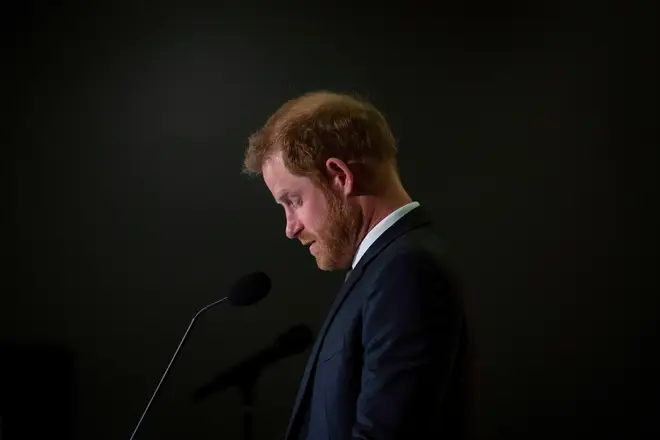
Clive Bull 1am - 4am
29 February 2024, 00:25

The Duke of Sussex faces a £1 million legal bill after losing a legal challenge against the Home Office over his right to automatic police protection in the UK.
Prince Harry may have to fork out a hefty sum to pay his lawyers as well as cover the legal costs of the Home Office following the ruling on Wednesday.
The loser in a High Court case typically pays both set of bills, meaning the Duke could face an estimated £1 million bill unless he successfully appeals the ruling.
In October last year, the Home Office revealed that it had already incurred £407,000 in legal fees - and this was before another three-day trial in December.
These costs included £265,437 for the Government Legal Department and £137, 864 for barristers.
The Duke also hired ‘celebrity law firm’ Schillings to represent him in the trial, meaning his own bills are likely to be on the pricier side.
Harry sued the Home Office after it refused to spend taxpayers’ money on him after he left the royal family.
A decision was reached on Wednesday morning that there had been no ‘unlawfulness’ in the decisions made by the Home Office to pull Harry’s security.
Immediately after the ruling lawyers for Harry said he plans to appeal.
Harry’s legal team argued he had been singled out and treated “less favourably” than other royals when he was denied the right to automatic police protection in the UK.

But the Government argued Harry’s claim should be dismissed, arguing the Executive Committee for the Protection of Royalty and Public Figures (Ravec), which falls under the Home Office, was entitled to conclude the Duke’s protection should be “bespoke” and considered on a “case-by-case” basis.
A statement read: "The court has found that there has not been any unlawfulness in reaching the decision of 28 February 2020.
"Any departure from policy was justified. The decision was not irrational.
"The decision was not marred by procedural unfairness. Even if such procedural unfairness occurred, the court would in any event be prevented from granting the claimant relief.
"This is because, leaving aside any such unlawfulness, it is highly likely that the outcome for the claimant would not have been substantially different."
"The court has also found that there has been no unlawfulness on the part of RAVEC in respect of its arrangements for certain of the claimant’s visits to Great Britain, following the decision of 28 February 2020."
A Home Office spokesperson said: “We are pleased that the Court has found in favour of the Government’s position in this case, and we are carefully considering our next steps. It would be inappropriate to comment further.
“The UK Government’s protective security system is rigorous and proportionate. It is our long-standing policy not to provide detailed information on those arrangements, as doing so could compromise their integrity and affect individuals’ security”.

The Sussexes were stripped of their protection when they stepped back from royal duties in 2020.
In December, Home Office lawyers told the High Court Prince Harry would still have publicly-funded police security, but these would be "bespoke arrangements, specifically tailored to him", rather than the automatic security provided for full-time working royals.
A legal spokesperson for the Duke of Sussex said: “The Duke of Sussex will appeal today’s judgment which refuses his judicial review claim against the decision-making body Ravec, which includes the Home Office, the Royal Household and the Met Police.
“Although these are not labels used by Ravec, three categories – as revealed during the litigation – comprise the ‘Ravec cohort’: the Role Based Category, the Occasional Category and the Other VIP Category.
“The Duke is not asking for preferential treatment, but for a fair and lawful application of Ravec’s own rules, ensuring that he receives the same consideration as others in accordance with Ravec’s own written policy.
“In February 2020, Ravec failed to apply its written policy to the Duke of Sussex and excluded him from a particular risk analysis.
“The duke’s case is that the so-called ‘bespoke process’ that applies to him, is no substitute for that risk analysis.
“The Duke of Sussex hopes he will obtain justice from the Court of Appeal, and makes no further comment while the case is ongoing.”